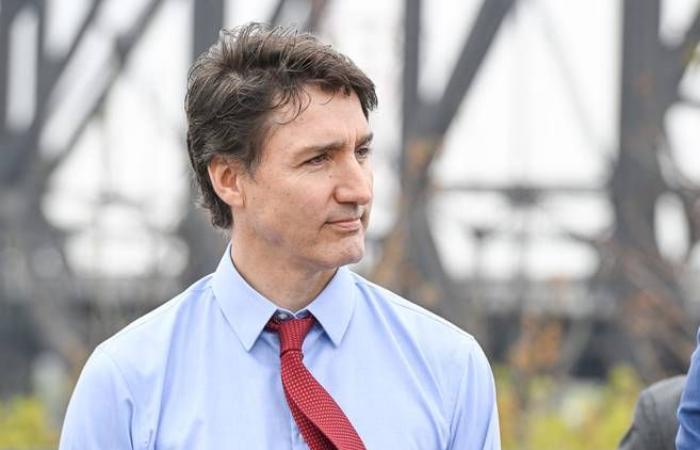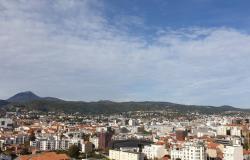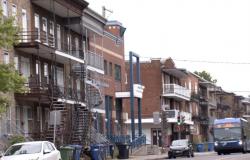The capital gain is the difference between the sale price and the purchase price of an asset, for example a cottage, rental property or shares. In the last budget, Ottawa announced that the inclusion rate, or the portion of the gain considered taxable, will increase from 50% to 66.67% above $250,000.
Let’s take the example of a chalet purchased for $100,000 and resold for $500,000, for a gain of $400,000. Currently, half ($200,000) will be added to the owner’s income and taxed accordingly. With the reform, $225,000 will be added to his income, or 50% of the first $250,000 ($125,000) and 66.67% of the remaining $150,000 ($100,000). This represents an additional tax of approximately $13,000.
Pierre Poilievre, leader of the Conservative Party. (Adrian Wyld/Archives, The Canadian Press)
The government isolated this aspect of the budget in a bill, in order to force the Conservatives to get involved. Otherwise, they could have claimed to have voted against the budget as a whole, but not necessarily against this measure. The Conservatives were the only ones to vote against. Note, the Bloc Québécois is not sure it likes the reform. He reserves the right to change his mind after hearing the experts. He would like to protect small savers by instead establishing a higher exemption, but usable only once for life.
Justin Trudeau insists that the Conservative Party is doing like in 2015, when it opposed the 1% tax increase. “Today he finds himself in the same situation, defending benefits for the richest in this country, while we ask for a little more to help with housing for young people, to help seniors with care dental and for many other things.”
Pierre Poilievre retorts that it is also in the name of the less fortunate that he opposes the reform. “A tax on doctors, when we have a shortage of doctors, that means even fewer doctors. A tax on farmers means more expensive food.”
Why does he say that? Because agricultural businesses are subject to this tax (although they benefit from a seven-figure exemption).
And the doctors? In the 2000s, governments granted them the privilege of incorporating in order to compensate for remuneration deemed insufficient. More than half of Canadian doctors have done so. This was a serious mistake.
Doctors can leave part of their income in their corporation, which is then taxed at a lower corporate rate, and accumulate interest income on these unpaid taxes. Their corporation becomes a sort of super RRSP to which other workers are not entitled. It is when the doctor liquidates his corporation, upon retirement for example, that he will be caught up in the reform.
Mr. Poilievre is exploiting the situation to reinforce his new image as a popular politician who cares about low-income earners in these difficult economic times. But even when the economy was booming, he said the same things. In 1999, at the age of 20, he argued for the complete abolition of the capital gains tax in an essay competition. “I would free the eagle from its cage,” he wrote, according to what Andrew Lawton reports in the biography of the leader that he has just published. He even organized a pro-abolition tour as Jason Kenney’s intern.
In 2017, when the Liberals increased taxes on professional corporations, Mr. Poilievre opposed it. With the same arguments. “It will be more difficult to get a doctor. […] Doctors believe they will be forced to close their practices and, each time that happens, the local Liberal MP will have to explain to citizens why they have one less doctor.”
Poilievre replies
Pierre Poilievre does not intend to remain on the defensive on this issue. He promises to set up, within the first 60 days of a possible mandate, a working group to reform taxation. He wants lower, “fairer” taxes (by attacking tax havens) and simpler “with 20% less paperwork”.
Who will win the battle for public opinion? Robin Hood 2.0 or Born-Again-Middle-Class?
The Liberals are trying to replay the 2015 movie, but things have changed since then. In 2015, they promised three deficits totaling 25 billion. Nine deficits and $587 billion later, voters are beginning to question this profligacy.
The capital gains inclusion rate has been subject to variations over time. Established in 1972 at 50%, it was increased to 66.67% and 75% by Brian Mulroney, then reduced to 50% by Jean Chrétien’s Liberals once the budget was balanced. This shows that the setting of the rate depends less on the color of governments than on the color of the ink with which they write their budget. Mulroney was in the red at the time, as Justin Trudeau is today. The needs justify the means.
Foreign interference
On a completely different front, Pierre Poilievre still refuses to request his security clearance which allowed him to consult the secret documents at the origin of the explosive report claiming that parliamentarians knowingly collaborate with foreign states. Jagmeet Singh did it, Elizabeth May too and after refusing for a long time, Yves-François Blanchet will do it too.
This becomes all the more interesting since the leader of the Green Party, after reading the documents, felt that their scope had been exaggerated. Mr. Singh says the opposite and suggests that Pierre Poilivre prefers denial because the leadership race that elected him was the subject of interference.
The link? As the election deadline approaches, expectations of the leader increase. His rivals seek to push him beyond his slogans. With capital gains, Justin Trudeau establishes a clear contrast which makes certain attacks possible. We will see by the end of the summer if it is enough to right his ship.






